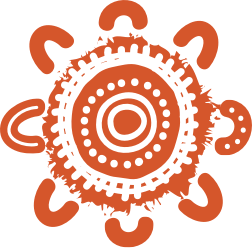- Home
- Treating cancer in our mob
- How is cancer treated
- Chemotherapy

Treating cancer in our mob


Chemotherapy
Chemotherapy, or chemo, involves you taking strong medicine to kill cancer cells. There are lots of chemo medicines that treat different cancers. Many of the different cancers, if found early, can be treated successfully. Chemo can be given as a single medicine or a combination of two or more.
Many people have chemo in cycles – once every two or three weeks usually. It can also be given daily, weekly or monthly. The cycle varies depending on the chemo type and cancer type. Most people need to go to the hospital to have chemo, usually one or two days every 2 to 3 weeks. Some people can have chemotherapy at home.
Most chemo comes as injections into your arm or hand that drip into the body over an hour or two. This way it goes straight into your blood stream. Some chemo comes as tablets that you can swallow, or it can come in liquid. If you’re having chemo, your doctor will tell you how it will work for you.
Your doctors will talk to you about what treatments they recommend and what your options are, so there won’t be any surprises.
Read more about chemotherapy.
Where can I have chemo?
You can have chemo in most hospitals. You might also be able to have it at home. If you have to travel to see your doctors, you might have to do that for chemo, too. Ask if you can have it somewhere nearer home. Where you have chemo will depend on things like:
- how long your treatment will last
- what type of cancer
- type of medicine
- how your body goes with chemo
- how you feel when getting your chemo.
Find out more about help with travel and accommodation.
What are the side-effects of chemo?
Your doctor will yarn with you about side effects you may get. There are lots of things you can do to help with side-effects.
Chemo can make people feel sick and tired for a while. Most people don’t feel like eating much and might get sores in their mouth or throat. Some people may have trouble going to the toilet, and may have diarrhoea. Chemo can increase the risk of infections, so people have to be careful if they have a fever. Some people get headaches and can’t think as well as normal. Some people lose their hair, but not everybody.
What can I do about the side-effects?
The main thing is to understand and accept you might not be able to do everything you normally can. Some things change while you’re going through treatment. You will still be able to do lots of things, but might need help with some things.
Tell your family and friends how you are feeling, and what’s happening.
Many people find they need to rest more. More practical help is needed, as well as love and support. Spiritual guidance, connection to Country and mob, music and stories have all helped others. Some people see special health care professionals for pain, moving around and mental health.
It can be easier to eat smaller amounts of food more often, to help if you’re feeling sick. There are some medicines that can help.
Yarn with your doctor, nurse or Aboriginal and/or Torres Strait Islander Health Worker about side-effects you have. They can help work out what the problem is and what will best help you.
There’s more information here about managing side-effects.
What questions should I ask?
Here are some questions you can ask. You might add others too:
- Why do I have to have chemo?
- How does chemo work?
- How will I get it?
- Where will I get it?
- How long does treatment last?
- What side-effects will I get?
- Does chemo hurt?
- How much does it cost?
- Can I have chemo if I’m pregnant?
- How do I prepare for chemo?
- How long will I be away from home?
Life with and after cancer
FIND OUT MORE
Where can I get help or support?
FIND OUT MORE

